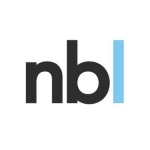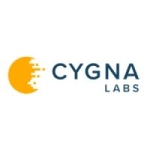What is our primary use case?
It provides us with IPAM, which is managing our address space, along with DNS and DHCP services.
How has it helped my organization?
Integrity supplies DNS resolution, which is how everything runs, the devices or host need to resolve a name, and it provides those answers in a quick, orderly fashion and everything is humming in the network. Without it, meaning if things were failing and breaking down, we would be impacted.
There are some RFCs that Integrity abides by so that you can't create records that are not in accordance with RFC standards. Other tools I've seen will let you create those records but Integrity doesn't allow you to do so. You don't make those mistakes.
In addition, there were some areas in our organization where address space was still kept on spreadsheets or that used other tools to support DNS or to manage the address space. Integrity has become the single source of truth for our address space. Using the database within Integrity has given us the ability to create UDFs (user-defined fields) and populate them with additional data that provides security information, devices, and application owners.
In that regard, what's in the database is not Integrity's problem, but it's only as good as what you put into it and remove from it. As long as the data you put in is accurate and, when you decommission things, you remove them, it's fine.
What is most valuable?
The most valuable feature is its stability. The product is very stable, and that's key.
The tool is also very easy to use and navigate. You do have to have some DNS or IPAM experience, and understand how they work, to navigate.
We are integrating with more and more tools every day, not with a canned solution, but through an open API solution where we're creating calls and writing to Integrity, back and forth.
What needs improvement?
BlueCat Integrity provides a single pane of glass view of your IP address space when you are a small company. But if you acquire multiple other companies, there are other products on the market that provide a better view than the way BlueCat handles it, although Integrity still does provide that functionality. Our company has been acquired, and has acquired other companies, and we have address conflicts because a company we purchased is using the same address space and it gets very difficult to see it in one view.
The way that Integrity handles it is that it creates multiple configurations and you have to bounce back and forth to see how that address space is being used. It does provide us with a way to manage multiple environments but it requires some additional hardware for some of the Microsoft integration when it comes to handling dynamic updates.
Also, a problem with integrating Integrity with ServiceNow, for example, is that we're in the cloud with ServiceNow, and there is a compatibility issue with that in terms of communicating back and forth.
And one of the big pushes within our organization is multi-factor authentication. Integrity is not up to snuff yet for supporting some of the new standards for multi-factor authentication, specifically on the BDDS.
One more negative is that, while the product is IPAM, DNS, and DHCP, it does provide NTP functionality, but one of the things that they have yet to correct or catch up with is NTP authentication. There are new standards being pushed out and they are lagging a little bit in supporting them.
One of the other pieces that has been a sticky point for our organization is some of the API functionality. A lot of it used to be SOAP. In the new versions they're releasing it's going to be RESTful APIs, which is what we were always looking for. It's just taken BlueCat a little bit of time to catch up with some of the other vendors that provided that already.
For how long have I used the solution?
I've been using BlueCat Integrity for about seven years.
What do I think about the stability of the solution?
It's kept us pretty much in "the nines". We haven't had any issues with it. There are always the little one-offs and "gotchas", but overall, the product is very stable. It provides the solution that we're looking for.
What do I think about the scalability of the solution?
It's very scalable, based on the hardware you throw at it, like with any product. Typically, you build it for what you have, but when you need to scale up, you need to add more CPUs and memory to the boxes to handle more. It's very easy to scale.
Our Integrity deployment is global. We have multiple instances. The two government entities we work with have their own, independent Integrity environments. We also have one for our legacy environment, which has about 100 BDDSs in it, and we have it in our new organization, which has about 50. The new organization isn't global but the old organization was. So we have about 150 DNS servers deployed globally, handling DNS and DHCP. I expect BlueCat would consider this a medium-sized deployment. I know they have others that are a lot larger than this.
How are customer service and support?
The support is very good. They can provide us with solutions to pretty much any weird requests we come up with. They have supported us on some crazy requests from our business side for things that typically don't come in and we have to reach out to them for advanced services to support them. There are always situations where things are not working as expected and we also work with them when going through upgrades or changes.
We're a company that acquires a lot of other companies. For example, we're integrating an environment that has Infoblox, which is an Integrity competitor. We're taking all of that data, with the help of Integrity's professional services, and importing it into BlueCat and supporting that environment from Blue BlueCat's hardware. And then, we'll decommission the Infoblox appliance so that we have all the IPAM data within one system.
One of the negatives we had with Infoblox was their support. Almost every request that we would submit to them would require a call to our sales group to ask "What's going on? We're not getting support." With BlueCat the difference has been night and day. We have a group of people who specifically look at our account and track our cases and requests.
Our company also supports government environments where we adhere to a lot of STIG (Security Technical Implementation Guide) requirements. The majority of what we work on with BlueCat's advanced services is making sure the system supports these requirements for hardening the system, so that they're not vulnerable in any way. The government has a lot of higher standards than a normal organization.
How would you rate customer service and support?
Which solution did I use previously and why did I switch?
When we did switch it was because we were sold on it by the sales team. They stated that they could take our existing data, integrate it easily, and get the environment up. There was also a significant cost difference compared to the other products that were out there. The fact that the price was reasonable compared to some of the others was another driving point.
How was the initial setup?
It was a fairly easy integration. To stand the environment up is very easy. I was the only one involved on our side.
The challenge is getting everybody else to change. When you're talking about 100,000 devices needing to change their DNS entries, that's a little difficult to get done. It takes years, and there are people who read the request but just never get around to doing it. There are ways to overcome some of those things and get everyone to use the product. It's just how much you have to band-aid it to make it work.
What about the implementation team?
Their support services were great. It didn't take long. We reviewed a lot of the data and it was flawless. We were able to cut over everybody using it without any impact. I give kudos to their group.
What was our ROI?
The solution has reduced our total cost of ownership. With one of the other vendors, the overall cost to replace our existing setup was double, and that's why we didn't go with them.
What's my experience with pricing, setup cost, and licensing?
Overall, it's a decent price for the product. There are other vendors that have support models and costs that are, sometimes, double what BlueCat charges.
Which other solutions did I evaluate?
We've pretty much used, or looked at, every other product out there.
One of the better things about Integrity is that the underlying code it uses is an ISC DNS and DHCP. It's not like some of the other vendors that have created their own version of DNS.
For example, Infoblox has its own and things are not OPEN standard. And even Microsoft's DNS is not OPEN standard. There are things that they can do in there that you probably couldn't do in a bind environment, but how it works could be a little quirky. At least with bind, you know what you're working with.
BT Diamond IP is the same thing. They created their own bind version instead of using the standard. What happens there is that you get vulnerabilities on their product, whereas with bind, it's an open standard and you're going to get vulnerabilities and CVEs corrected sooner than later.
What other advice do I have?
In our case, it has been a challenge to make sure we get the correct information. We are using some additional tools to get that corrected. One of the things we've purchased is Forward Networks, which discovers your network and all the devices and all the connections. We are populating Integrity from that data. So if a subnet no longer exists, it will delete it, and if host records are no longer on the network, it will delete them. It will also discover and add subnets that we may not have known about, such as when some remote site has a subnet that is not represented in Integrity.
If someone at an organization doesn't think that they need a full-stack DDI management solution, I would have to ask them how they are handling it now. If you don't have an IPAM solution, and the size of your organization would be a big piece of it to get your return on investment, I can't see how you wouldn't. I know of a company that is managing all of its external zones manually, and there is a team of about four people handling that. They could probably do that with one person if they had the correct setup using Integrity.
Disclosure: PeerSpot contacted the reviewer to collect the review and to validate authenticity. The reviewer was referred by the vendor, but the review is not subject to editing or approval by the vendor.
















